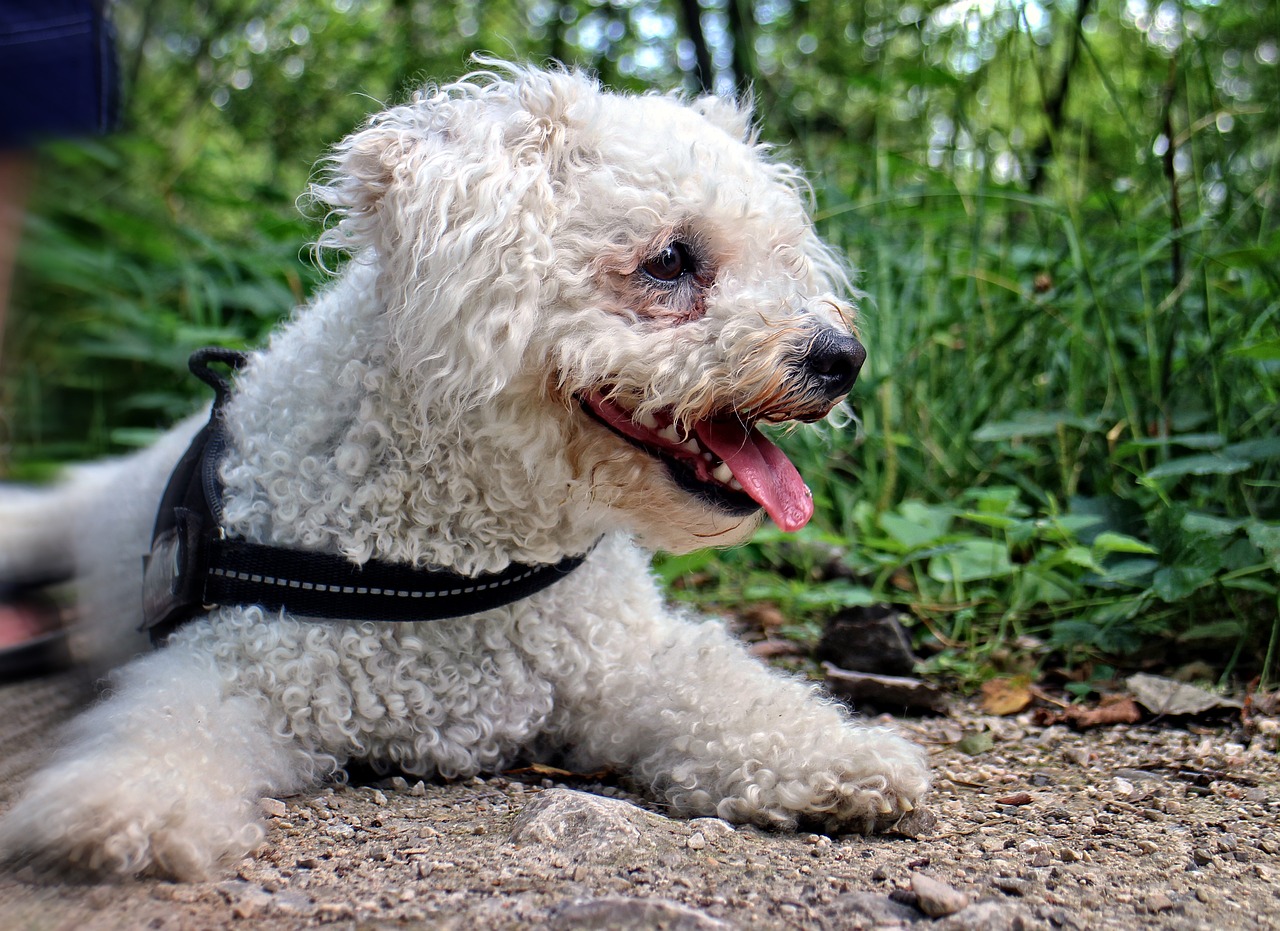The Bichon Frise is a small breed known for its friendly demeanor and distinctive puffy white coat. Regular grooming is crucial to maintain the breed’s signature look and ensure their well-being. This article will delve into the unique grooming needs of the Bichon Frise, outline how frequently each grooming task should be performed, and discuss best practices to keep these charming dogs looking and feeling their best.
1. Unraveling the Bichon Frise’s Coat Composition
The Bichon Frise boasts a double coat with a soft undercoat and a curly outer coat that require regular care. This section will discuss the function and challenges of their unique coat structure.
2. Brushing: The Bedrock of Bichon Coat Care
Daily brushing is essential to prevent matting and tangling in the Bichon’s dense coat. We’ll explore the types of brushes that work best and demonstrate effective brushing techniques.
3. Bathing Rituals for the Bichon Frise
A Bichon Frise typically needs a bath every 3 to 4 weeks to keep their coat clean and white. This section will provide tips on executing a thorough and safe bathing routine, including the selection of shampoos and conditioners.
4. Clipping and Scissoring: Crafting the Bichon’s Style
To maintain the Bichon Frise’s traditional look, regular trimming is necessary. We’ll cover the various clip styles, the frequency of haircuts needed, and some basic at-home grooming tips.
5. Nail Care: A Critical, Yet Overlooked Aspect
Consistent nail trimming is important to protect the Bichon Frise’s feet and posture. Guidance on how often to trim and how to recognize when it’s time for a trim will be provided.
6. Ear Care: Preventing Potential Health Issues
Due to their floppy ears, Bichon Frises are susceptible to ear infections. This section will detail the process of cleaning their ears and what to look out for to prevent infections.
7. Dental Health: Ensuring a Healthy Mouth
Dental hygiene is imperative for Bichon Frises. This part will explain the benefits of regular teeth cleaning and introduce dental hygiene practices that can be done at home.
8. Eye Care: Maintaining Clear Vision
Regular cleaning is important to keep a Bichon Frise’s eyes clear from discharge and to prevent staining. Tips on safe cleaning and stain prevention will be discussed.
9. The Role of Professional Groomers
Many owners opt for professional grooming for their Bichon Frise. This section will discuss when to consider professional services and what to look for in a professional groomer.
10. Seasonal Grooming Adjustments
Seasonal changes can affect the Bichon’s coat. We’ll explore how to adjust your grooming routine with the changing seasons, especially during the more shedding-prone periods.
Conclusion
Grooming a Bichon Frise is a rewarding but demanding task. A consistent grooming schedule is key to keeping the Bichon healthy and happy. With the right approach and tools, grooming can strengthen the bond between you and your Bichon, ensuring that they remain one of the most elegant and beloved breeds.
Frequently Asked Questions About Grooming A Bichon Frise
1. How often should I groom my Bichon Frise?
A Bichon Frise should be groomed every 4-6 weeks to keep their coat healthy, white, and mat-free. Daily brushing at home is also essential to maintain the quality of their coat between professional grooming sessions.
2. What is the best way to brush a Bichon Frise’s coat?
The best way to brush a Bichon Frise is to use a slicker brush and a metal comb. Start with the slicker brush to gently remove tangles and mats, and finish with the comb to smooth out the coat and ensure all the undercoat has been properly brushed through.
3. How often should a Bichon Frise be bathed?
Bichon Frises should be bathed every 3 to 4 weeks. It’s crucial to use a high-quality dog shampoo and conditioner to keep their coat soft and to avoid drying out their skin.
4. Do Bichon Frises need to have their hair cut?
Yes, Bichon Frises require regular haircuts to maintain their shape and prevent their coat from becoming unmanageable. A professional grooming every 4-6 weeks can help maintain the traditional Bichon Frise style.
5. How do I keep my Bichon Frise’s coat white?
Keep your Bichon Frise’s coat white by using a whitening shampoo specifically designed for dogs, wiping away tears and stains promptly, and ensuring they have a balanced diet to promote a healthy coat from the inside out.
6. How can I prevent my Bichon Frise from getting mats in their fur?
Prevent mats by brushing your Bichon Frise’s coat daily, using a detangling spray during grooming, and ensuring they are completely dried and brushed out after baths.
7. What are some common grooming styles for a Bichon Frise?
Common grooming styles for a Bichon Frise include the “puppy cut,” which is a shorter, more manageable all-over cut, and the “show cut,” which maintains the breed’s characteristic puffy and rounded appearance but requires more upkeep.
8. How should I clean my Bichon Frise’s ears?
Clean your Bichon Frise’s ears with a vet-recommended ear cleaning solution, gently wiping the outer ear and avoiding deep insertion into the ear canal. Regular checks can prevent infections due to their floppy ears.
9. How often should I trim my Bichon Frise’s nails?
Trim your Bichon Frise’s nails every 3-4 weeks to prevent discomfort while walking. If you can hear the nails clicking on the floor, it’s time for a trim.
10. How do I deal with tear stains on my Bichon Frise?
Deal with tear stains by gently wiping the area under the eyes with a soft, damp cloth daily, and using a tear stain remover if necessary. Consult your vet for recommendations if stains persist, as they may indicate an underlying health issue.

 Toledo, United States.
Toledo, United States.